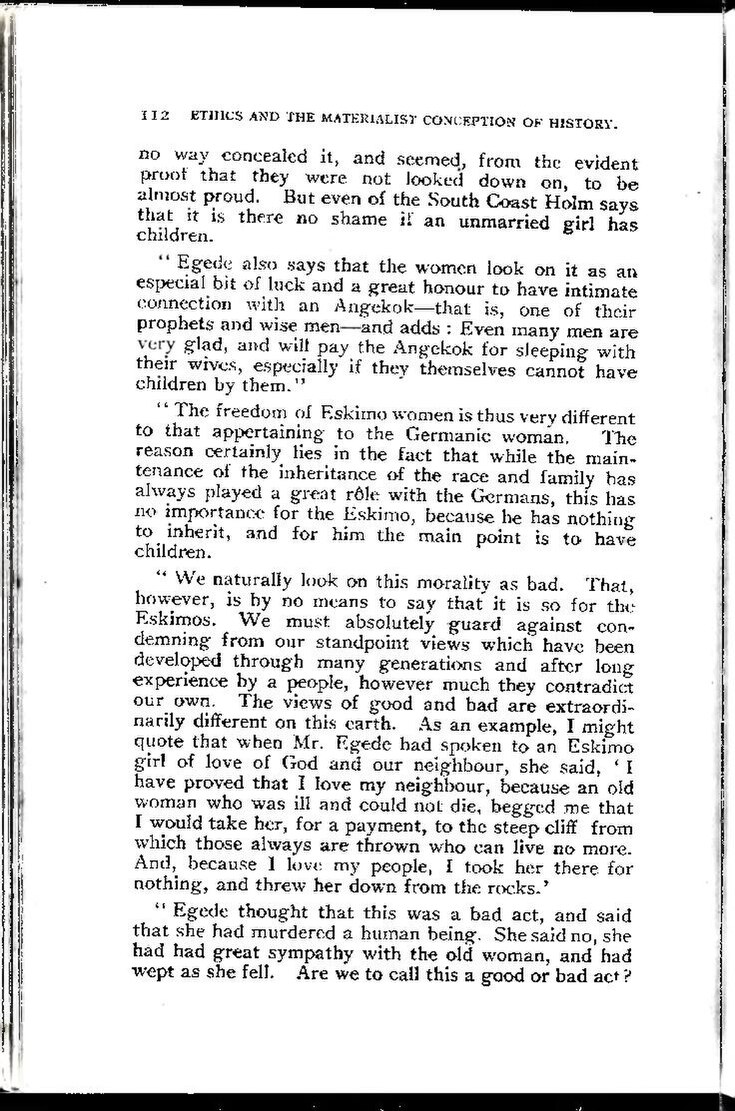no way concealed it, and seemed, from the evident proof that they were not looked down on, to be almost proud. But even of the South Coast Holm says that it is there no shame if an unmarried girl has children.
"Egede also says that the women look on it as an especial bit of luck and a great honour to have intimate connection with an Angekok—that is, one of their prophets and wise men—and adds: Even many men are glad, and will pay the Angekok for sleeping with their wives, especially if they themselves cannot have children by them.”
"The freedom of Eskimo women is thus very different to that appertaining to the Germanic woman. The reason certainly lies in the fact that while the maintenance of the inheritance of the race and family has always played a great rôle with the Germans, this has no importance for the Eskimo, because he has nothing to inherit, and for him the main point is to have children.
"We naturally look on this morality as bad. That, however, is by no means to say that it is so for the Eskimos. We must absolutely guard against condemning from our standpoint views which have been developed through many generations and after long experience by a people, however much they contradict our own. The views of good and bad are extraordinarily different on this earth. As an example, I might quote that when Mr. Egede had spoken to an Eskimo girl of love of God and our neighbour, she said, 'I have proved that I love my neighbour, because an old woman who was ill and could not die, begged me that I would take her, for a payment, to the steep cliff from which those always are thrown who can live no more. And,. because I love my people, I took her there for nothing, and threw her down from the rocks.'
"Egede thought that this was a bad act, and said that she had murdered a human being. She said no, she had had great sympathy with the old woman, and had wept as she fell. Are we to call this a good or bad act?
